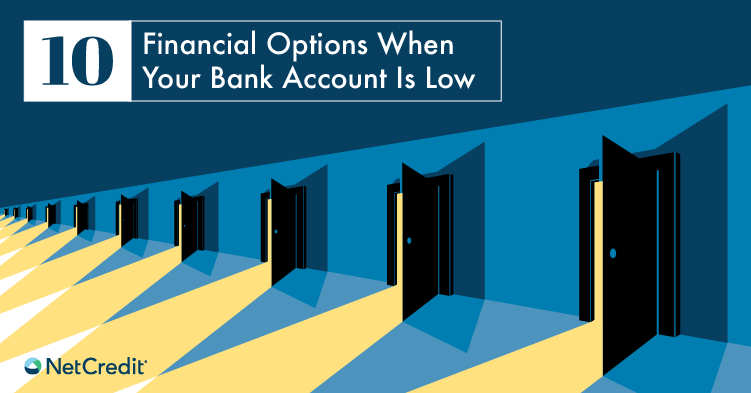Saving money from your salary can be a challenging task, especially with all the expenses that life throws at us. However, with the right strategies in place, it’s possible to build a robust savings plan and achieve financial security.
In this blog post, we’ll explore eight practical tips to help you save effectively from your salary, ensuring a brighter financial future.
1. Set a savings goal.
Before embarking on your savings journey, it’s crucial to define a clear savings goal. Whether you’re saving for an emergency fund, a down payment on a house, or a dream vacation, having a specific target will give you direction and motivation. Knowing what short-term and long-term goals you’re working toward will make it easier to stay disciplined in your savings efforts.
2. Make a monthly budget — and stick to it.
Creating a budget is the foundation of any successful savings plan. Start by listing all your monthly income and fixed living expenses such as rent or mortgage, your electricity bill and insurance. Allocate a specific amount of spending money for variable expenses like groceries, dining out and entertainment. Be realistic and ensure your monthly expenses do not exceed your income. Once your budget is set, stick to it diligently to avoid impulse buying and overspending.
3. Track your spending.
To adhere to your budget, track your spending regularly. Utilize budgeting apps or simply keep a detailed record of your monthly payments and expenditures. This will provide insights into your spending habits, helping you identify areas where you can cut back. Being mindful of your expenses is a key step toward limiting your monthly bills and increasing your savings.
4. Use direct deposit.
Set up direct deposit for your salary to ensure a seamless automatic transfer of funds to your bank account. From there, you can also set up automated transfers on pay dates from your bank account to your savings account. These fixed deposits make it easier to save consistently without the temptation to spend your entire paycheck. By diverting a portion of your salary directly into your savings account, you’re prioritizing your financial goals from the get-go.
5. Open a high-yield savings account.
Traditional savings accounts often offer minimal interest rates, making it challenging for your money to grow. Consider opening a high-yield savings account with a competitive interest rate. This will allow your savings to earn more over time, accelerating your progress towards your financial goals.
6. Work on paying down debt.
While the majority of American adults have at least one credit card, they’re used best when paid down every month. Yet around half of credit card users carry a balance from month to month. Having debt — especially high-interest debt — can hinder your ability to save. Allocate a portion of your salary to paying down outstanding debts, starting with those carrying the highest interest rates and working down to the lower interest debt. As you reduce your debt burden, you’ll free up more money to allocate towards savings.
7. Look for opportunities to cut spending.
Regularly review your expenses to identify potential areas for cost-cutting. Negotiate bills, switch to more affordable alternatives, and be mindful of impulsive purchases. Review your bank statements for subscription services you may be paying for but no longer use. Cutting back on unnecessary expenses can significantly boost your savings over time.
8. Start a side hustle.
If your primary income doesn’t leave much room for savings, consider starting a side hustle. Whether freelancing, consulting, or pursuing a passion project, a supplementary income stream can help you earn more money and bolster your monthly salary. From the extra earnings, you can add more to savings.
How much of your salary should you save?
While the ideal savings rate may vary based on individual circumstances, a good rule of thumb is to save at least 20% of your salary. Adjust this percentage based on your financial goals, current expenses, and the urgency of your savings objectives.
What are the best budgeting strategies?
Budgeting is the cornerstone of financial success, enabling individuals to take control of their money and make informed decisions about spending and saving. Whether you’re a seasoned budgeter or just starting, finding the right budgeting strategy that suits your lifestyle and financial goals is crucial. In this section, we’ll explore some of the best budgeting strategies that can help you achieve financial stability without breaking the bank.
Zero-based budgeting. Zero-based budgeting is a method where every dollar you earn has a designated purpose. The goal is to allocate all your income to specific categories, ensuring that your expenses match your income. This strategy requires meticulous planning, as you assign each dollar to essentials like housing, utilities, groceries, savings, and discretionary spending. The key is to reach a balance where your income minus expenses equals zero.
50/30/20 rule. The 50/30/20 rule provides a simple and flexible budgeting guideline. Allocate 50% of your income to needs (housing, utilities, groceries), 30% to wants (entertainment, dining out), and 20% to savings and debt repayment. This strategy offers a clear structure while allowing for personalization based on individual priorities.
Envelope system. If you prefer a tangible approach to budgeting, the envelope system might be your ideal choice. Divide your cash into envelopes labeled with specific spending categories, such as groceries, entertainment, or transportation. Once an envelope is empty, you’ve reached your limit for that category. This strategy promotes discipline and prevents overspending in any particular area.
Bi-weekly budgeting. For those who receive their income bi-weekly, this strategy aligns your budget with your paycheck schedule. Break down your monthly expenses into two pay periods, ensuring that you have enough to cover bills, savings, and discretionary spending. Bi-weekly budgeting helps you stay on top of your finances and reduces the likelihood of running out of money before the end of the month.
Budgeting apps. In the digital age, budgeting apps can be powerful allies in your financial journey. Apps can automate the budgeting process by categorizing transactions, tracking spending patterns and providing insights into your financial health. These tools can save time and offer a real-time snapshot of your financial situation.
The Bottom Line
Saving money from your salary is a gradual process that requires discipline and commitment. By setting clear goals, creating a budget, tracking spending, and implementing these ten tips, you can build a solid foundation for financial success. Remember, the key is consistency — small, regular contributions to your savings will accumulate over time, providing you with the financial security and peace of mind you desire.






